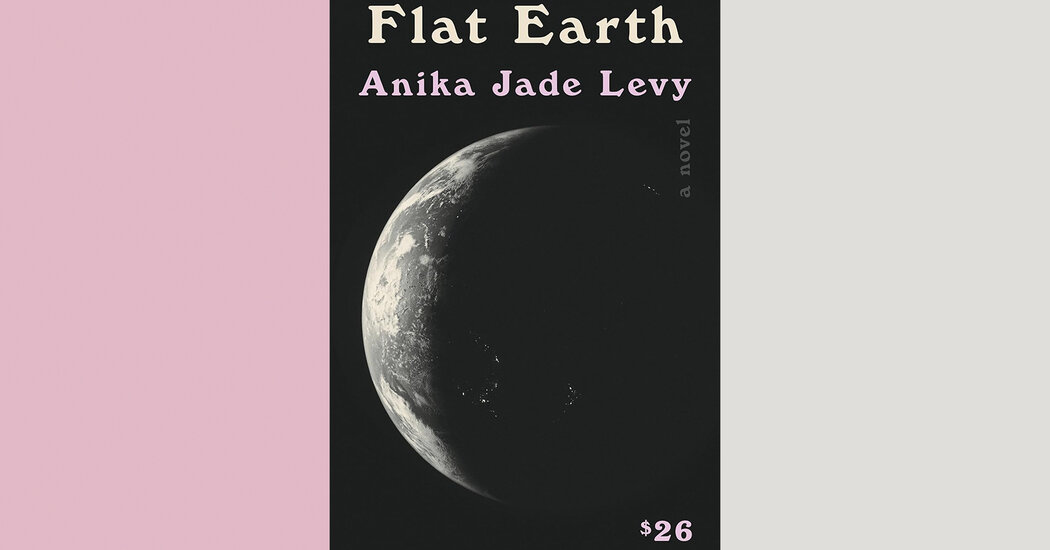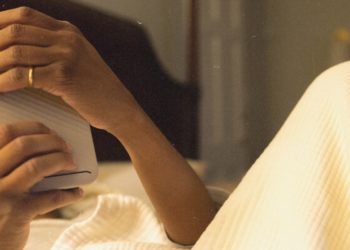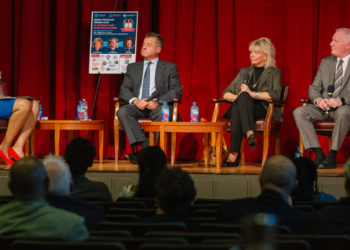FLAT EARTH, by Anika Jade Levy
Early on in Anika Jade Levy’s satirical debut novel, “Flat Earth,” two young women named Avery and Frances bond over their preference for an astronomy app over the real thing: “We both agreed we preferred the constellation on her touch screen — colorful and psychedelic — to the night sky itself,” Avery reflects. The scene is one of the book’s best. Witty and poignant, a joke about people “born behind screens.”
Several years after this episode, Avery and Frances are graduate students living in New York. Avery is an aspiring writer and Frances a filmmaker. Set mostly in the downtown art scene of the very recent past — Fernet, plays staged in lofts, tiresome reactionary politics — the book opens with an Adderall shortage. Avery is addicted to prescription stimulants and “incapable” of writing without them, so she spends the summer following the rich and pretty Frances around the country as Frances shoots a documentary about conspiracy theorists in rural America.
The two visit “postindustrial towns ravaged by QAnon and synthetic opioids and dead factories.” We learn nothing about these places except that the women observe them at a cynical remove and find them weird. The “Flat Earth” of the title refers to the name of the documentary, but also to the world the women inhabit. It is mediated and affectless; these characters “arrange their faces” instead of emoting.
When Frances is done filming, they return to New York. Frances drops out of school and moves home to North Carolina to finish the movie and marry a blue-collar guy (both of which make Avery jealous), while Avery stays, supporting herself with intermittent sex work and a short-lived job at a right-wing dating app called Patriarchy, and chipping away at “a book of cultural reports.”
In alternating chapters, we glimpse these reports — the book within a book by a person who barely wants to write. They are delivered aphoristically, as is some of the prose in the more narrative sections.
“Flat Earth” is funny and sharp, but a bit underrealized. Its observations aim for Renata Adler but come closer, at times, to Jack Handey. On the birth of a horse: “One moment there was one horse, the next moment there were two horses. A horse arriving fully formed out of another horse.” Others are stereotypes played for laughs: “I told her that in Greek mythology, the only way to preserve a girl’s virtue is to turn her into a tree. In the American South, one has to get married.”
Threads that are introduced with an air of significance disappear unresolved. Avery’s job at Patriarchy is canceled out of the blue, before her experience amounts to anything more than a couple of dates with rich guys. Meanwhile, the mechanics of Frances’ art-making don’t add up. We are told that most of her documentary was shot on Super 8 or 16-millimeter film, yet all along she has reviewed the footage on a camcorder screen for hours at night at their motel.
Still, the book effectively portrays the psychology of young women who are chronically online. Avery loves her friend, but the two remain remote. Their relationship is always fraught, always about appearances. Who is thinner, who is more successful? They have internalized the feed. “Why was I always seeking permanence in places where women are disposable?” Avery wonders. “Like galleries.”
Her helplessness in every situation is telling. She can’t replace her shattered phone or get a job. She waits around for some man to marry or educate her. There is a layer of sadness under the flat surface, not quite accessible. This tension is ultimately where the novel succeeds in being beautiful. Levy is good at keeping the feeling out of reach.
FLAT EARTH | By Anika Jade Levy | Catapult | 224 pp. | $26
The post It’s Hard to Be Chronically Online and Hate Your Friends appeared first on New York Times.




